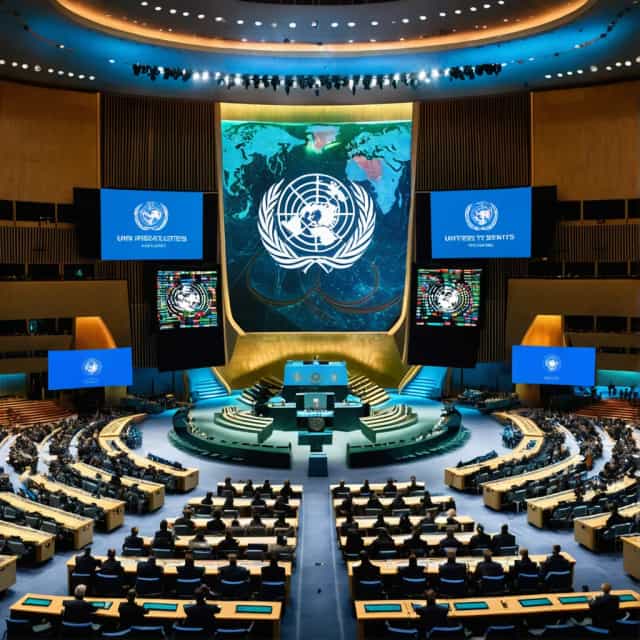![[Special H-1B Visa] ② Tech Giants Urge: "Come Back Now if You're Outside the U.S."](/_next/image?url=https%3A%2F%2Fwww.blockmedia.co.kr%2Fwp-content%2Fuploads%2F2024%2F05%2F%25EB%25B9%2584%25ED%258A%25B8%25EC%25BD%2594%25EC%259D%25B8-%25ED%258C%25A8%25EB%258B%2589%25EC%2585%2580.jpg%3Fformat%3Dwebp%26width%3D600&w=1200&q=70)
출처: Block Media
U.S. Businesses Face Uncertainty as Trump Raises H-1B Visa Application Fees to $100,000
The abrupt announcement of a dramatic increase in H-1B visa application fees to $100,000 per employee has left corporate America reeling. A cornerstone of the Trump administration's push to overhaul immigration policy, this move has particularly affected technology firms and other major U.S. companies that rely heavily on foreign talent. With limited warning, these organizations scrambled to act, issuing directives to employees to remain in the U.S. or return promptly if abroad, while navigating the broader implications of the policy change.
Immediate Reaction: Corporate Travel Advisories
The sudden policy change, announced late Friday and set to take effect at 12:01 AM on Sunday, shocked employers and employees alike. Businesses were caught off guard by the lack of prior notice, triggering instant reactions from legal and HR teams across industries.
“This proclamation came without any prior notice or warning, and it was deeply shocking,” said a spokesperson for Fisher Phillips, a leading employment law firm.
Tech companies, including Microsoft, Google’s parent company Alphabet, and Amazon, immediately communicated urgent travel advisories to their H-1B visa employees. Internal memos instructed affected staff to cancel international trips and return to the U.S. before the rule went into effect.
- Microsoft addressed employees by acknowledging the uncertainty surrounding the situation. The company urged its workforce to prioritize compliance with the new rules, despite unanswered questions.
- Walmart issued similar advisories, recommending that visa holders avoid leaving the U.S. until greater clarity about the intent and implementation of the policy emerged.
- Cognizant worked to bring back employees currently overseas, urging H-1B visa holders to return immediately before the policy became active.
Many corporate HR teams launched proactive initiatives to ensure all affected employees were accounted for. In cases where individuals were abroad, companies prioritized expediting their travel back to the U.S., often coordinating directly with legal counsel to reduce risks.
Rising Anxiety Among H-1B Visa Holders
For thousands of H-1B visa holders, the announcement fueled confusion and apprehension. Many foreign workers who had planned travel or were in the process of relocating found themselves in precarious situations overnight.
An engineer based in the Bay Area, who was preparing to transfer from the United Kingdom, received last-minute advice from his company’s legal team to delay relocation plans. Similarly, a Google employee canceled a trip to Tokyo to visit family after concerns arose about the complications of international travel during the regulatory shift.
The unexpected nature of the announcement—combined with its significant financial implications—left those reliant on H-1B visas uncertain about their long-term job security and mobility.
White House Offers Clarifications
In response to increasing backlash and confusion, the White House issued statements on Saturday aiming to clarify critical aspects of the policy. Officials confirmed that the $100,000 application fee applies only to new visa petitions during the upcoming H-1B lottery cycle and is a one-time charge rather than an annual cost. They also assured that the rule will not affect renewals or the ability of current H-1B visa holders to travel abroad and reenter the U.S.
Despite these reassurances, many companies had already taken preemptive measures to safeguard their operations and ensure minimal disruption. Employers urged staff to remain in compliance while legal teams sought additional guidance to interpret nuances in the rule.
Industry Pushback and Legal Challenges
The sweeping changes have been met with an outcry from businesses and immigration advocates, raising questions about the broader economic and workforce implications. U.S. tech firms, in particular, underscored the vital role of skilled foreign labor in maintaining global competitiveness within key sectors like technology and innovation.
Many immigration attorneys have signaled the likelihood of swift legal challenges to contest the rule. Experts predict that courts could issue injunctions to delay or halt implementation, given the procedural and constitutional concerns surrounding an announcement of this magnitude.
Broader Impact on Business and Competitiveness
The reliance of major corporations on foreign talent remains a fundamental pillar of U.S. innovation and economic growth. As the global competition for skilled workers intensifies, industry leaders argue that restrictive measures such as a steep fee increase could have unintended consequences, including driving skilled talent to other countries with more favorable visa policies.
With legal battles on the horizon, the ripple effects of this policy reach far beyond this initial period of uncertainty. The administration's approach to immigration reform could have enduring repercussions on corporate strategies, workforce planning, and America’s long-standing ability to attract and retain top global talent.
While businesses brace for potential reversals in court, the immediate fallout underscores the fragility of the current immigration framework and its importance to sustaining U.S. leadership in technology, innovation, and global competitiveness.










